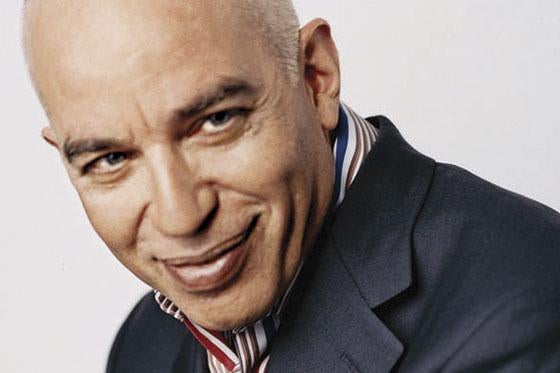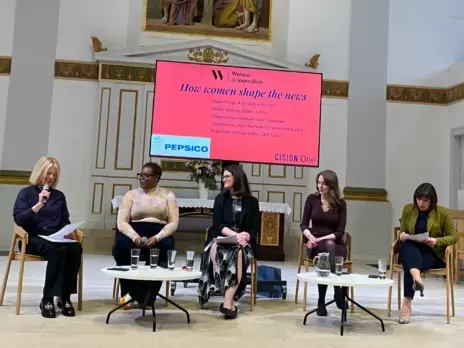
This interview with Rupert Murdoch biographer Michael Wolff first appeared in the January 2009 print edition of Press Gazette and is published online today for the first time as Murdoch turns 80.
THERE IS A LINE IN MICHAEL WOLFF’S BIOGRAPHY of Rupert Murdoch when he recounts overhearing Wendy Deng ask her husband why he doesn’t have any friends. The News Corp boss replied with a scowl: ‘But I could if I had wanted to.”
There is a chance that Wolff, who spent hundreds of hours with Murdoch over a period of nine months in research for the book, knows him better than just about anyone outside his family.
Wolff believes part of the reason Murdoch let him get so close is that he thought he would get a sympathetic hearing. But the New York- based author and digital media entrepreneur didn’t seem star-struck when he gave Press Gazette his impressions of ‘the man who owns the news”, as the title of his book claims.
He says Murdoch is a monomaniac who is completely uninterested in technology and who maintains control over his vast empire by discouragingindependentthought.
Explaining Murdoch’s decision to grant him such unprecedented access, Wolff says: ‘The background has to do with him feeling very pleased with himself because of the acquisition of the Wall Street Journal. I don’t think he really thought it through – like so many of the things that Murdoch does it was a kind of a snap decision without anybody saying this is what this means and this is what’s going to happen. It was completely fortuitous for me. I went in and had this access. There were no rules, no agreements.I could ask anything.”
Wolff is a media columnist for Vanity Fair magazine and had interviewed Murdoch several times before.
‘I think he came to believe that we shared a set of enemies. And that would essentially be people who work at the New York Times,’Wolffsays.’I have alway stake nissu ewith a certain sanctimony that rules, especially in the New York journalism community, and that’s been a very anti-Murdoch sanctimony.”
Describing ‘those people’as a ‘fundamental ailment of the journalism business’Wolff says: ‘Why is journalism failing? It’s failing not because of Murdoch but because of these sanctimonious people who somehow can’t create a product that people want to read.”
Murdoch is hated by left-leaning journalists in the US for launching right-wing news channel Fox News, and because of the perception that he interferes in editorial decisions, Wolff says. ‘His view would be: Number one, that proprietors who do not interfere with their product, who do not deeply engage with their products, are remiss, are negligent, and that’s why their newspapers more or less are going out of business.”
Wolff says that Murdoch is still deeply involved in the running of his UK titles – and is particularly close to Sun editor Rebekah Wade who he is ‘incredibly fond of, almost as a member of the family”. ‘At the same time he can say that Rebekah Wade is an incredible suck-up, he can also say that she holds a special position within News Corp,’he says.
‘Rebekah’s fundamental interest in the newspaper business is anticipating what Rupert wants. And she’s good at that, she enjoys it. The highpoint of her week, of her career, is a kind word from Rupert.”
Former Times editor Robert Thomson is another of Murdoch’s particular favourites, according to Wolff. Thomson joined News Corp as editor of The Times in 2002 after being passed over for the editorship of the Financial Times, and earlier this year was made managing editor of Murdoch’s newly acquired Wall Street Journal.
Wolff says of Thomson: ‘When he crossed over it was a kind of conversion for him. He felt he was treated shabbily by the FT; his revenge in some sense was to convert to Murdochism. And he became an entirely Murdochified Murdoch editor.
‘Rupert developed a crush on Robert and I think Robert developed a crush on him. They became these guys who were both giddy in each other’s presence.”
A third journalist who Murdoch is said to be particularly impressed by is Telegraph Media Group editor-in-chief Will Lewis, formerly with News Corp as business editor of The Sunday Times.
‘Murdoch has only said incredibly laudatory things about Will Lewis. From listening to the way that he spoke about a lot of people, and Murdoch was to say the least unedited when he spoke about other people, I thought that he really liked Lewis, that there’s something really there. If I had to single one person out, or one among a handful of people who Murdoch would really like as part of News Corp, I think Lewis is one.”
After starting out by inheriting a daily newspaper in Adelaide in 1953, Murdoch now runs a global media empire with annual revenues of $33bn.
The way he maintains control over all this is, according to Wolff, in part down to a corporate culture that discourages independent thinking.
‘If you’re not going to be a Murdoch person you are not going to rise and thrive in News Corporation. It is a business that you have to leave a significant part of your own ambitions at the door. You work for Rupert Murdoch, you are Rupert Murdoch’s representative and agent. You exist at his sufferance. If you cannot accept that you’re not going to make it.”
When asked what it is about Murdoch that has made him such an extraordinary success, Wolff says it is partly due to an ‘incredible and unexpected sense of entitlement”.
He says: ‘Here’s a man who does not really care about anyone else. He has the ability to operate independently from everyone else’s expectations and standards of ritual and propriety.
‘He grew up as the only son in one of the most important and powerful families in Australia. He sees himself as a kind of prince. I don’t mean that in the sense of someone who is indulged, I mean someone who is entitled – ‘I should run things. My way is necessarily a good way’… He’s been underestimated because people don’t realise that in him beats the heart of a king.”
Despite Murdoch’s public evangelism in recent years about the importance of online media, Wolff believes that his over-riding passion continues to be newsprint. ‘There’s a monomania here. ‘I want to be a newspaper proprietor and I will do anything to make myself a newspaper proprietor and if that means that I have to buy movie studios and television networks I will do that. My reason for being is to run newspapers.’
‘He doesn’t know anything about technology. He doesn’t care about it. When it comes to technology, Rupert Murdoch is a 77-year-old man. No more, no less.”
‘Even when he goes out and makes announcements about technology – technology is the future, News Corp is a technologically advanced company – that is just what somebody has given him to say.
‘He does not mean it, he does not understand it, he is incurious about it. He doesn’t use a computer, he doesn’t get email, he cannot get his cell phone to work.”
In the UK, News Corp has just spent £500m on new print presses and, according to Wolff, Murdoch remains ‘wholly completely committed to the print business”.
Wolff claims it ‘doesn’t bother’Murdoch that ‘everybody else is going out of business in the print industry”. ‘He is perfectly content to be the last man standing,’he says.
‘And I think he fundamentally believes, and maybe correctly believes, that that’s a reasonable business model.
‘The decline of the newspaper business has been universally bad for everybody in the business, apart from Murdoch”, he adds.
‘It’s been great for him because he’s suddenly been able to buy titles that he would never have been able to buy before. He has bought the Wall Street Journal and it is not at all unlikely that he will try to buy the New York Times, and that he could succeed in buying it.”
Wolff says that everybody in the Murdoch clan believes that the youngest of his grown-up children, James (already chief executive of News Corp in Europe and Asia) will succeed his father as overall chief executive.
But Wolff believes that if Murdoch were to die tomorrow the board of directors of News Corp ‘would be under enormous pressure to make [chief operating officer] Peter Chernin CEO. That’s the unresolved thing, he has to figure that out – he’s aware of that.”
Not that Wolff believes Murdoch intends to retire – or expire – any time soon. ‘Rupert profoundly believes he has another 40 years, and in that time – whether it’s 40 years or somewhat less – he wants to do what he has to do to be the greatest, if not last, newspaper proprietor on earth.’P
Email pged@pressgazette.co.uk to point out mistakes, provide story tips or send in a letter for publication on our "Letters Page" blog






